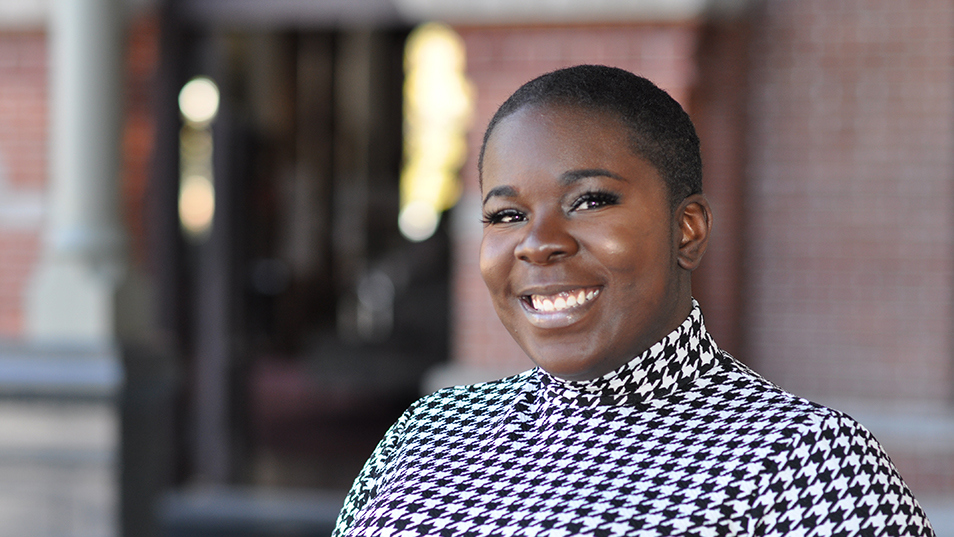Contact us
401 W. Kennedy Blvd.
Tampa, FL 33606-13490
(813) 253-3333
When the Super Bowl comes to Tampa on Sunday, Brianna Mercer ’16 hopes it leaves a lasting impression on more than just football fans. She’s hoping the spotlight of the big game and the influence of the National Football League (NFL) lift up the Tampa community.

Brianna Mercer ’16 is the only student representative on an NFL committee on systemic justice called resolve.
Mercer, who is in UT’s graduate program in criminology and criminal justice, is the only student representative on a 25-member committee on systemic justice called resoLVe. That committee is part of Forever 55, a social legacy program funded for $2 million by the Tampa Bay Super Bowl LV Host Committee and the NFL to create programs (with 12-to-18-month timelines) focused on six pillars: early childhood education, families, food insecurity, health and wellness, sustainability and systemic justice.
“The purpose of this committee is to create sustainable programming throughout Tampa that won’t just stop on Feb. 7,” said Mercer, who was nominated for the position by Kathryn Branch, assistant dean of the College of Social Sciences, Mathematics and Education and professor in the Department of Criminology and Criminal Justice.
Mercer, of Washington, D.C., graduated from UT with her undergraduate degree in criminology and criminal justice in 2016. She completed a semester of law school and a couple of years working in the legal field, determining that she didn’t want to argue for laws — she wanted to write policy.

“I want to be part of a spark that starts the overall flame for change,” Mercer said.
In addition to being a member of Delta Sigma Theta sorority, Mercer is involved in UT’s student and faculty working group to address systemic racism in the Department of Criminology and Criminal Justice, which is advised by Rhissa Briones Robinson, an assistant professor in that department.
Have a story idea? Contact Jamie Pilarczyk, Web Writer
Read more UT Life stories.
Subscribe to News and UT Life
More UT News